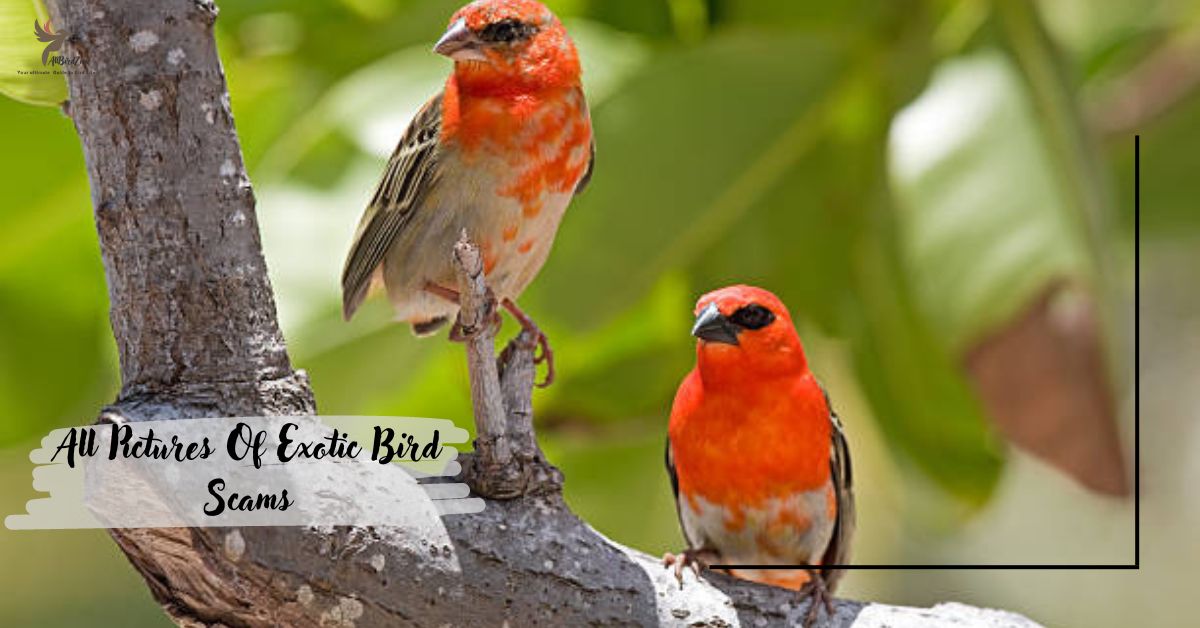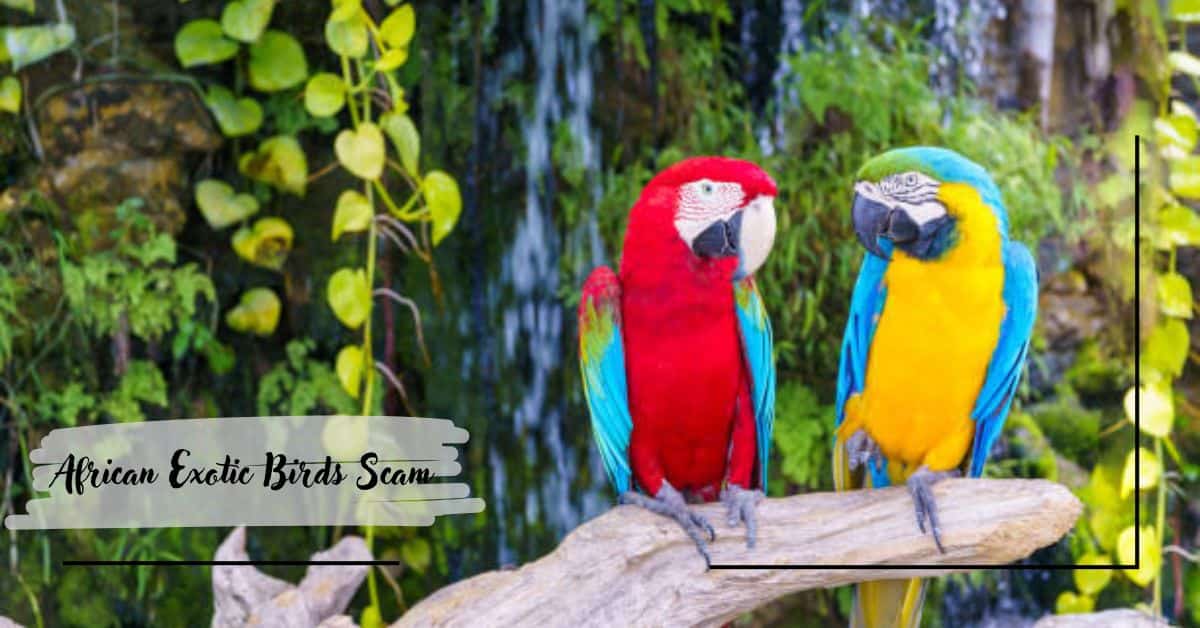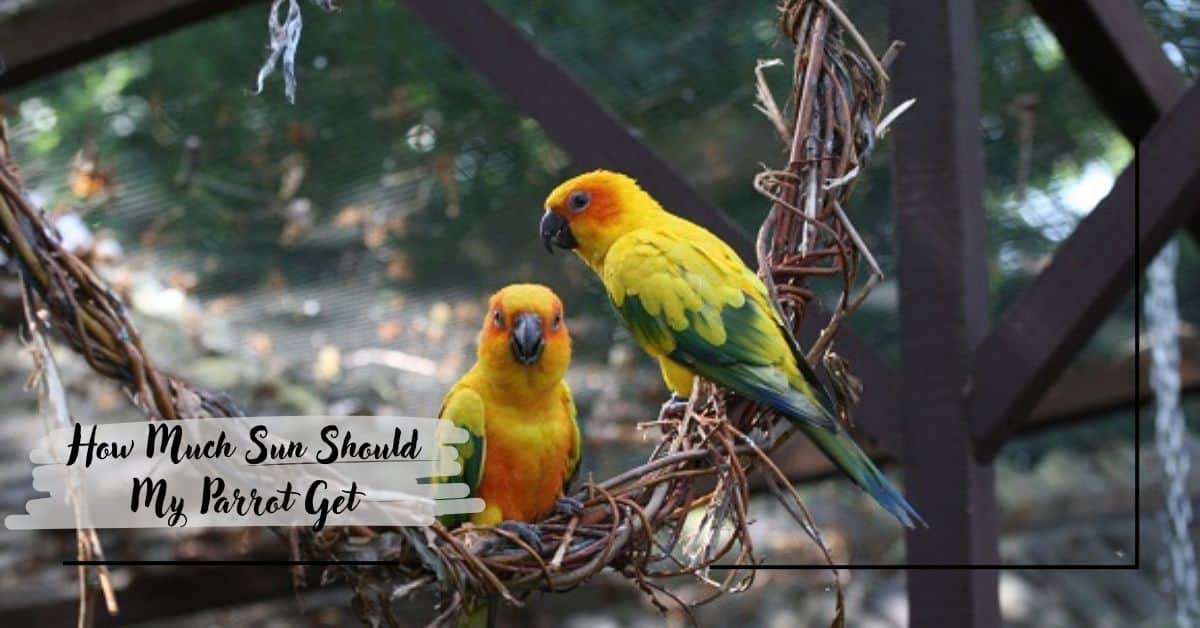All pictures of exotic bird scams” seem to refer to fraudulent schemes involving misleading or deceptive images of exotic birds. These scams often target people looking to purchase or adopt exotic birds and use enticing or fake pictures to trick individuals into paying for birds that either don’t exist or are not as advertised.
What Are Exotic Bird Scams?
Exotic bird scams are fraudulent schemes where scammers deceive people into buying rare or exotic birds that don’t exist or aren’t as advertised. These scams often involve fake online listings or ads that showcase beautiful and expensive birds, promising them at a low price. The scammers may use convincing photos and fake credentials to make their offers seem legitimate. Once the victim pays for the bird, they may receive nothing or a completely different, often sick or unhealthy bird. In some cases, the scammer disappears with the money, leaving the buyer with no recourse. These scams exploit people’s love for exotic pets and their desire to find unique birds.
Common Types of Scams:
- Fake Listings: Scammers create ads with stolen or misleading photos of exotic birds.
- Non-Delivery Scams: After receiving payment, the scammer disappears or invents excuses for not delivering the bird.
- Phishing Scams: Scammers may use the bird transaction to steal personal or financial information.
How Do Scammers Use Pictures?
Fake Pictures: How They Are Created
Scammers often use images from the internet or steal photos from other sellers to trick potential buyers. These images are usually high-quality and make the birds look much better than they actually are. In some cases, scammers may edit the photos to enhance the birds’ appearance, making them look more exotic or healthier than they truly are.
Misleading Images and Their Impact
Misleading images can create a false impression of a bird’s health or rarity. When buyers see these edited or stolen pictures, they might believe they’re getting a special or high-quality pet and decide to buy it quickly. This impulse can lead to paying more money than the bird is worth. Once the scam is discovered, buyers often feel deceived and face financial loss, as they have spent money on something that doesn’t match the misleading images they were shown.
How to Identify a Parrot Scam?
Identifying a parrot scam involves watching for several key warning signs. First, be cautious of sellers who offer unusually low prices or deals that seem too good to be true. Scammers often use fake or stolen photos of parrots to make their ads look convincing, so check if the pictures seem overly perfect or if you can’t get additional, recent photos. If the seller is unwilling to meet in person or provide verifiable information about the parrot’s health and background, that’s a red flag. Also, look out for sellers who pressure you into making quick decisions or ask for upfront payments before you see the parrot. Always research the seller, read reviews, and verify their credibility to avoid falling for a scam.
Why Are These Scams Dangerous?
Financial Risks Involved:
Financial loss is the most immediate risk. Victims may lose the money they paid for the bird, which is often hard to recover. In some cases, scammers may also access sensitive financial information.
Emotional and Psychological Impact:
Being scammed can be distressing. Victims may feel regret, frustration, and even embarrassment. The emotional toll can be significant, especially for those who were eagerly looking forward to getting a new pet.
When Do These Scams Typically Occur?
Common Timing and Patterns:
Exotic bird scams can happen at any time but often increase during peak buying seasons, like holidays or the start of the year when people are more likely to make new purchases. Scammers may also exploit events like bird fairs or expos to target potential buyers.
Seasonal Trends in Scams:
During certain times of the year, such as around Christmas or summer, scams may increase due to higher demand for pets. Scammers take advantage of these times to exploit the eagerness of buyers.
Which Signs Indicate a Potential Scam?
Red Flags to Watch For:
Unclear or Inconsistent Information: Scammers often provide vague or conflicting details about the bird.
Too-Good-to-Be-True Deals: Extremely low prices or deals that seem too good to be true are often a sign of fraud.
Unverified Sellers: Lack of a verified history or reviews for the seller can be a warning sign.
How to Verify Authenticity?
Research the Seller: Look for reviews and check their history. A reputable seller should have a solid track record.
Request More Photos and Videos: Ask for recent photos and videos of the bird to ensure it matches the advertised images.
Meet in Person: Whenever possible, arrange to meet the seller and see the bird in person before making any payment.

How to Protect Yourself from Scams?
Tips for Safe Transactions:
Use Reputable Platforms: Stick to well-known and trusted websites or platforms for buying pets.
Verify Seller Information: Check the seller’s credentials and look for red flags.
Avoid Upfront Payments: Be cautious of sellers asking for large deposits or full payments before you see the bird.
Best Practices for Researching Sellers:
To protect yourself from scams, follow these steps when researching sellers. First, check reviews and ratings from other people who have bought from them to see if they are trustworthy. Next, ask for references get contact details of previous customers who can confirm the seller’s honesty. Also, research the bird’s breed and usual traits to make sure the seller’s descriptions match what’s real. This will help you avoid scams and ensure you’re buying from a reliable source.
What to Do if You’ve Been Scammed?
Steps to Take Immediately:
Contact Your Bank or Payment Provider: Report the scam and try to recover your funds.
Notify the Platform: Inform the website or service where you found the scammer.
Document Everything: Keep records of all communications and transactions related to the scam.
How to Report and Seek Help?
File a Complaint: Report the scam to local authorities or consumer protection agencies.
Seek Legal Advice: Consider consulting with a lawyer if the financial loss is significant.
Share Your Experience: Inform others about the scam to help prevent similar situations and raise awareness.
Frequently Asked Questions:
What Should I Do If I Suspect a Parrot Scam?
If you think you might be dealing with a scam, stop all communication with the seller immediately. Do not send any more money or personal information. Report the suspicious activity to the platform or website where you found the ad and to local authorities.
How Can I Check If a Parrot Seller Is Legitimate?
To check if a parrot seller is legitimate, look for reviews and ratings from other buyers. Verify the seller’s contact information and ask for references. A trustworthy seller should be willing to provide information about their business and the parrot’s history.
Are There Common Warning Signs of Parrot Scams?
Yes, common warning signs include unusually low prices, high-pressure sales tactics, and sellers who are unwilling to provide detailed information or meet in person. Be wary of sellers who avoid answering questions or provide vague responses.
How Can I Protect Myself When Buying a Parrot Online?
To protect yourself when buying a parrot online, always use reputable websites and platforms. Verify the seller’s credentials and research their background. Avoid making upfront payments and always ask for recent photos or videos of the parrot. If possible, arrange to see the parrot in person before finalizing the purchase.
What Information Should I Ask for Before Buying a Parrot?
Before buying a parrot, ask for detailed information about the bird’s age, health, and any previous medical history. Request recent photos or videos and inquire about the parrot’s diet and living conditions. A responsible seller should provide this information without hesitation.
Can I Get My Money Back If I’ve Been Scammed?
Recovering money from a scam can be challenging, but you should report the scam to your bank or payment provider as soon as possible. They may be able to assist you in recovering the funds. Additionally, report the scam to the platform where you found the seller and consider seeking legal advice if needed.
Conclusion:
To Sum Up, being aware of parrot scams and knowing how to spot them can help protect you from fraud. Always research sellers, watch for red flags, and use trusted platforms when buying a parrot. By staying informed and cautious, you can ensure a safe and happy purchase.








